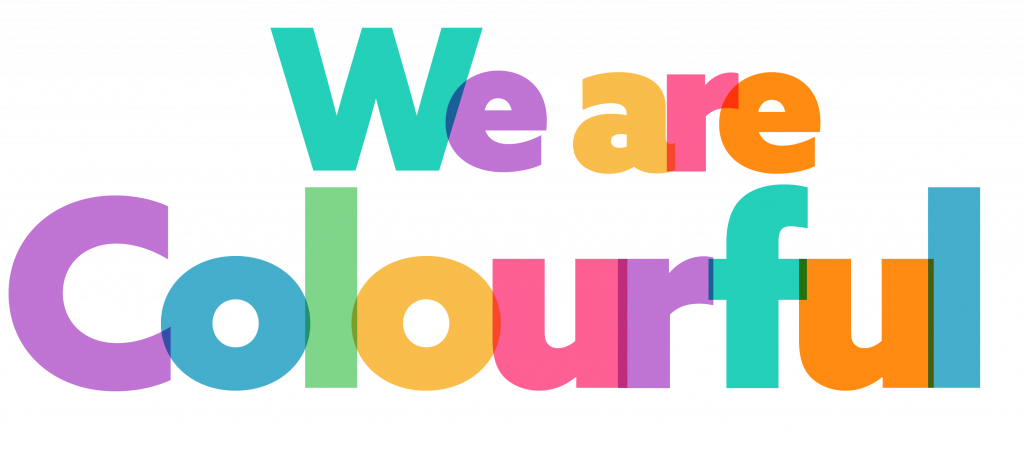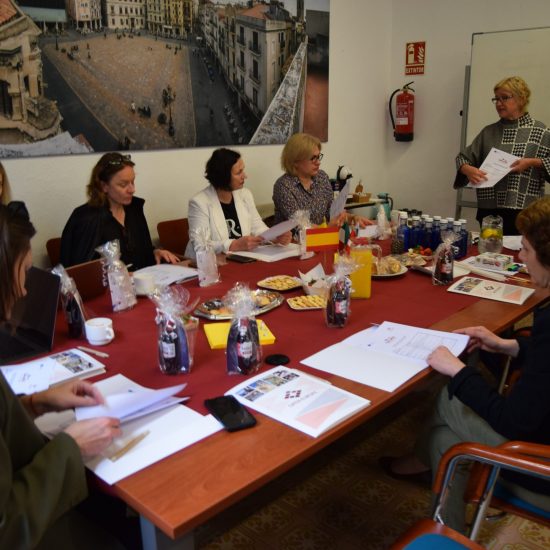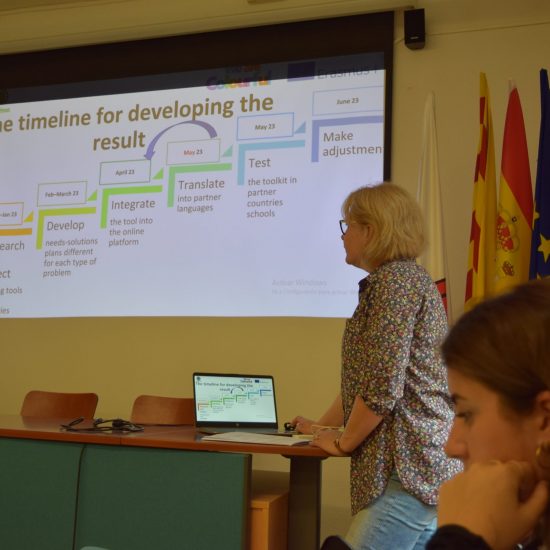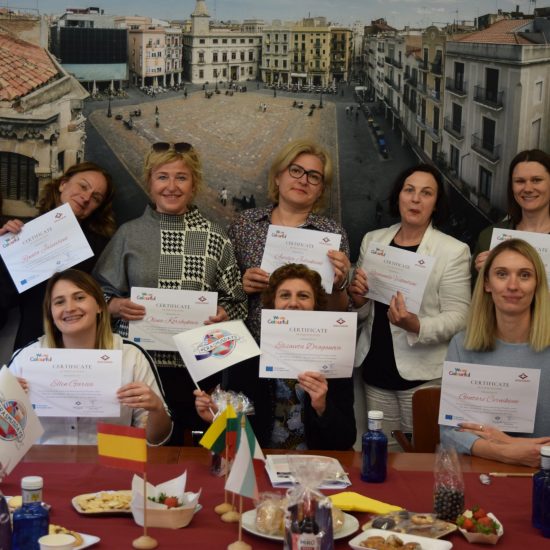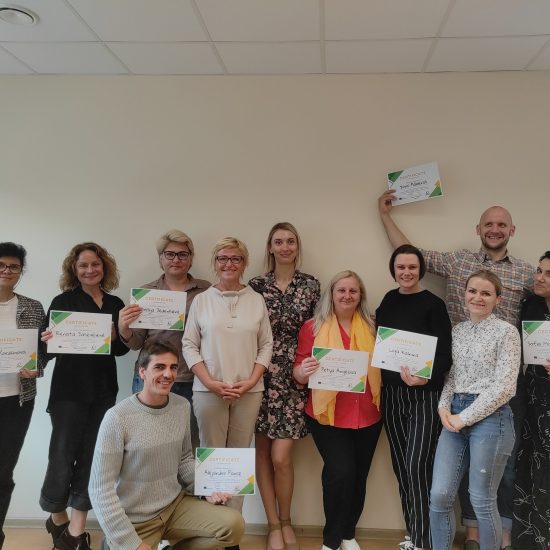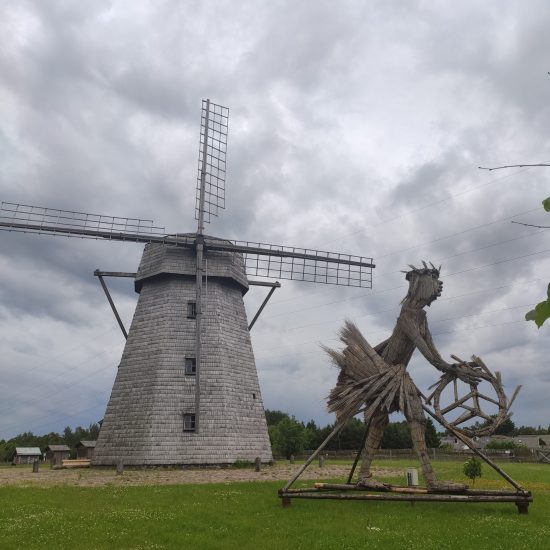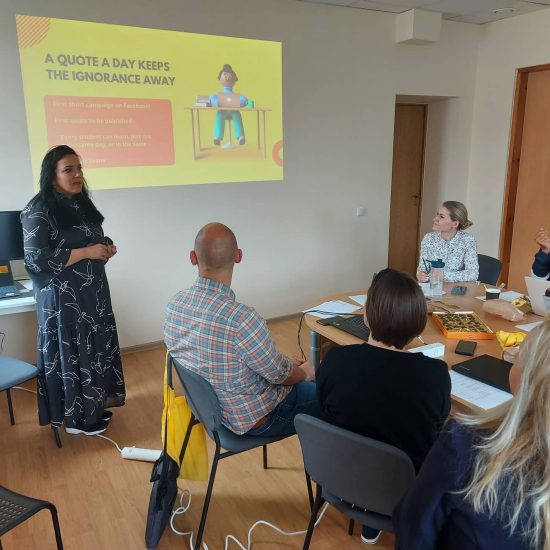Partners
Lithuania
VšĮ EDUKACINIAI PROJEKTAI
The organization VšĮ EDUKACINIAI PROJEKTAI was established in 2010. in order to: promote, develop and implement the principles of the Lifelong Learning Program in the field of non-formal education, development of social and professional skills; to develop non-formal education programs for specialists working in the field of social integration and socialization; to organize training and to develop and implement national and EU projects in the field of social welfare and to actively participate in the process of building a knowledge-based civil society.
Tasks: to organize non-formal education activities for children in order to improve the 21st century. abilities; to transfer to teachers models of good practice used abroad and to encourage the use of innovation in formal education; to improve the competencies of social workers, their assistants and other specialists, to contribute to the increase of their professionalism in working with vulnerable groups of the society; to develop and implement national and international projects contributing to the creation of social welfare.
Target groups: children; teachers; social workers; vulnerable groups in society.
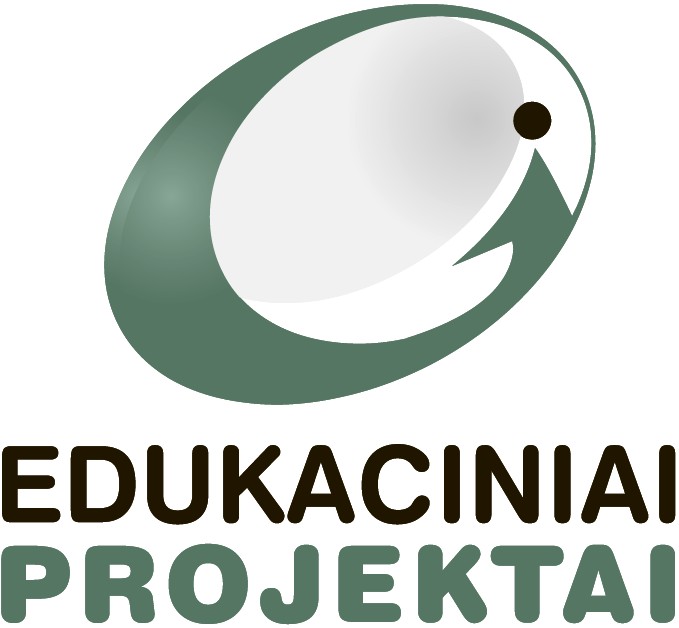
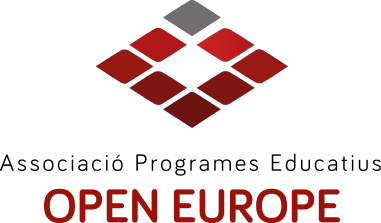
Spain
OpenEurope
The Association of Educational Services “OpenEurope” is a non‑for‑profit organisation with the main office in Reus (Catalonia, Spain). All projects and initiatives of our organisation aim at involving educators, teachers, professors, students and the whole community in carrying on projects and programs that seek a life-long learning process. The educational programmes are designed to develop the participants’ communication, leadership and employability skills.
It is the only qualified multiplier point of the European network Eurodesk in the province of Tarragona.
OpenEurope helps to involve all members of the community in the activities of these entities, especially those related to civil participation, immigration, and technology at the service of the people or Smart Cities.
OpenEurope offers training in different fields doing language courses, training on digital security, offering gastronomic, dancing, and personal growth workshops…It also has an Information and Communication Technologies department which creates all kinds of platforms and websites.
Italy
Microkosmos
Microkosmos is an independent, non-profit, international organization established in 2016 in Italy. The objective of Microkosmos is to promote diversity, interculturality and raise awareness of different cultural expressions and their values in order to encourage the development of cultural interaction with the goal of bringing people closer together and closing the cultural gaps.
Microkosmos aims to promote:
- Activities that help people improve their creative thinking and their awareness of cultural and educational diversity in Europe, and in parallel to reinforce the EU identity.
- Cultural accessibility through adapting and transcribing the cultural, scientific and legal texts.
- Publishing activity through releasing and / or distributing books, multimedia tools, studies or researches.
- Artistic creation and Interculturalism.
The organization operates based on the principles of social solidarity with an interdisciplinary method for the cultural growth of the person – of any ethnicity and origin – favoring instruments of interpretation of the different artistic and socio-cultural realities. The philosophy is to recognize the individuals, and provide them with tools, knowledge and a voice.
Microkosmos organizes annually innovative seminars regarding the cultural heritage and the arts addressed to young people, people with disabilities, (im)migrants and refugees in collaboration with the University of Turin.


lithuania
Kretinga Marijonas Daujotas progymnasium
Kretinga Marijonas Daujotas progymnasium is an educational institution, located in the Western part of Lithuania. The school is a municipal budgetary institution operating since 1939. It runs primary education and basic education (first part) programmes.
The vision of the school is – an innovative, ECO school developing a responsible, active and creative personality. One of the strategic aims of the school is to improve the organization of teaching /learning process in order to achieve the progress of each student and task is to adapt the curriculum to students of different abilities.
Much attention is paid to raising students’ learning motivation and developing practical skills. The school has a smart classroom equipped with modern technology, and a science laboratory has been set up where students do practical research. Students participate in various projects, competitions, Olympiads and achieve good results. The school has chosen economic, ecological and aesthetic directions. Therefore, in addition to traditional knowledge, students acquire the basics of economics and entrepreneurship, marketing, and management. Economics and entrepreneurship skills are developed by participating not only in school and district projects, but also in international ones. The school has recently implemented Erasmus+ projects „Entrepreneurship: a step into the future“, „Eco-step in Europe“. The school is proud of students’ high achievements in the fields of art (technology, art, music, dance), sports.
Our school community is very colourful as we teach quite a big number of students with special needs. We are glad that the school employs a great team of highly qualified specialists who try to find the key that would unlock access to these children and they would let us into their world, which is sometimes incomprehensible to an adult. The team members pursue a common goal – together we can do more and constantly strive to be a bridge to the success of a child with special needs. Our specialists pay special attention to the development of creativity of students with special needs – our pupils are participants and winners of regional, national and even international exhibitions and events. This is a great opportunity to showcase their talents and creative powers. We are constantly happy with what our student can do, instead of worrying about what they don’t know yet and may never learn.
Latvia
Zini Foundation
The Foundation for Education and Innovation “ZINI” is a non-governmental organization located in Latvia. The organisation was founded in the year 2018 with the aim of improving the life quality of adults, promoting their active citizenship and involvement in decision-making processes through education and innovation.
The organisation was founded by a group of people with teaching experience and knowledge in various fields, such as social inclusion, technologies, education and training, culture and tourism, and accessibility among others, with the aim of helping adults to improve their communication, digital and civic competencies, skills and give them opportunities to develop their social, business and cultural initiatives.
The main objective is to focus on the opportunities for people, especially disadvantaged groups, such as seniors and people from rural areas, through organising training, workshops, events, and projects. To achieve this objective, the foundation closely collaborates with public bodies, businesses, social and cultural organisations, such as NVO Nams, EU House, the Municipality of Ogre and many others.
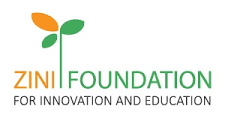
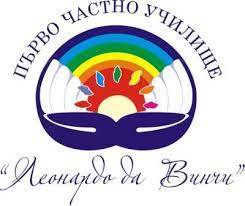
Bulgaria
Leonardo da Vinci First Private School, Bulgaria
Leonardo da Vinci First Private School, Bulgaria: The school is situated on the right bank of the Danube River in Ruse, the 5th biggest town in Bulgaria, in a well-developed region. Ruse has been a heavily industrialized area for the past seventy years turning it practically into one of the industry-pivotal points across Bulgaria. Hence, the town has witnessed the drawbacks of a wide variety of chemical production and is a case-in-point exemplification of environmental issues.
The School comprises a primary and a secondary school so its students are between 5 and 19 years of age. We also have a kindergarten with the same name – Leonardo da Vinci Kindergarten for children aged from 2,5 years old to pre-school age. The students are involved in an 8 to 5 attendance scheme including children from the town and the region as well as kids and youths of mixed or foreign origin so they speak a variety of languages, have different religions, and come from various cultures and ethnicities. There are children both of Turkish, British, Romanian and Russian backgrounds and youngsters who were born and have lived in Britain, Spain, Canada and the USA, whose parents are both Bulgarian, both foreigners or one of them is Bulgarian. Therefore, they have difficulties communicating in Bulgarian, which often happens to be their mother tongue. Our school has rich experience in the application of cross-curricular activities for example including fairy tales, games, drama, dance, sports, and creative, ecological and artistic activities in the teaching process. The last years have also included STEM – a related mode of the educational process with an emphasis on the arts and reading/writing/craft-based activities. The school has been teaching children in their first steps in entrepreneurship for eight years until today, as it has at its disposal well-prepared teachers and trainers from the University of Ruse. In the practical courses and workshops, there are many of the children’s parents, who are specialists in their current field of professional skills, who participate along with the students. Special attention has been delivered to social entrepreneurship and the benefits from it to society on a large scale. For years, the School has been organising Summer Academy Daily programmes during the summer holidays, where the children 6-10 years have the opportunity to apply their skills, talents and knowledge of Maths, Science, Bulgarian, English and other languages while working on a wide range of topics (Pets, Healthy Eating, The Danube, The Earth, Friends, etc.). Since 2011, the School has been a member of the For a Better School Climate International Network. Leonardo da Vinci School can readily share its good experience and practice with its partners in the region by working with both parents and the community in town. The NUMBER OF MEMBERS/STAFF – 33 teachers NUMBER OF STUDENTS – 125 students in 12 classes / 8-10 students in a class/; In addition to that, over 2200 children from more than 10 countries have attended the Summer Academy at the School.
